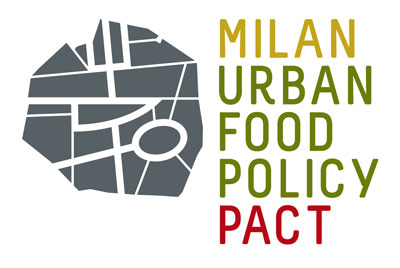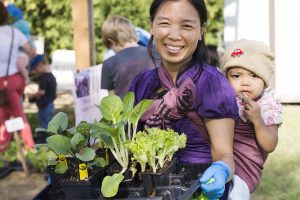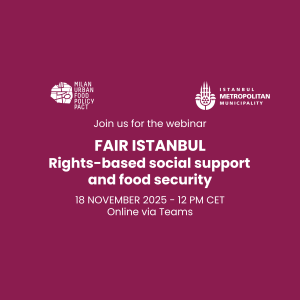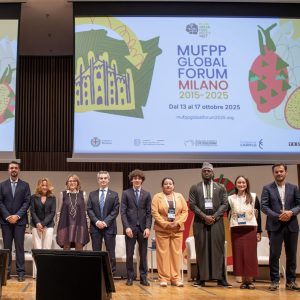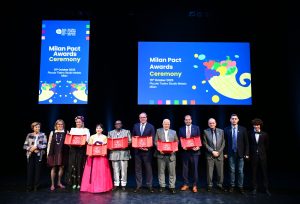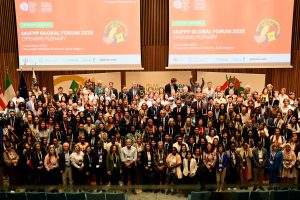In the last plenary session of the MUFPP Global Forum 2025, delegates approved the ‘Final Declaration’ with new perspectives: hunger never used as a weapon and the right to food for all.
After five days of meetings, discussions, plenary sessions, field visits, and collaborations between cities and international partners, the Milan Urban Food Policy Pact Global Forum 2025 concludes.
The 500 international delegates, from 130 of the more than 330 signatory cities of the Milan Pact, unanimously approved the Final Declaration, which, confirming the original intentions and commitments of the agreement signed in 2015, outlines the future directions and prospects for the next decade.
Five points outline the strategic and political framework within which the Pact cities will work, recognizing the profound connection between the climate crisis and food systems; recognizing school meals as a fundamental tool for social protection; investing in people, infrastructure, and partnerships; reaffirming the role of research in transforming the health, economic, and social dimensions of urban food systems; committing to transforming shared principles into local outcomes, intervening in global and regional processes to ensure that the voice of cities is increasingly heard.
Together, these five points form the foundation of a collective effort rooted in the conviction that access to adequate, healthy, and safe food is a fundamental human right, to be guaranteed under all circumstances, and that hunger can never be used as a weapon: the right to food for all is a shared responsibility, along with the commitment to building food systems that nourish people, regenerate the planet, and support peace.
“In 2015, we launched the Milan Urban Food Policy Pact, marking the beginning of a global alliance that is constantly growing and is now the largest community of cities working to make food systems more sustainable, inclusive, and resilient,” said Vice Mayor Anna Scavuzzo, in charge of Food Policy.
“Over the past decade, together with cities and partners, we have shown how food policies are building bridges between communities: they allow us to design a new urbanism for our social spaces, involving schools, markets, the environment, and relationships between people. Cities can transform food policy into a pillar of sustainable development, and they ask us to jointly consider climate, social justice, and public health issues. Looking to the next decade, we reaffirm our shared commitment as we address new and increasingly interconnected challenges—climate change, social inequality, conflict, and food insecurity. The Milan Pact community continues to grow with renewed determination, and the next decade will be a time of implementation, integration, and empowerment.” and inclusion, which will follow the new guidelines we approved together today: through food we can cultivate peace, inclusion and sustainability.”


